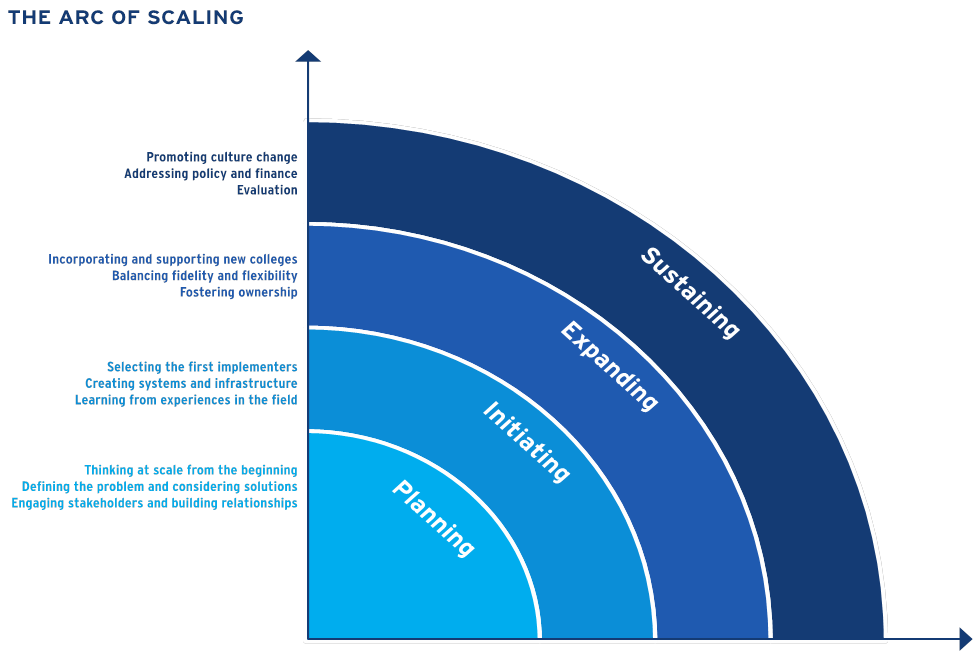This is the seventh post in a series about the Transformative Change Initiative (TCI) and is based on the 2014 TCI booklet. This post discusses the fourth guiding principle in the TCI Framework.
Most community colleges are publicly financed and therefore both empowered and constrained by the public environment. In order for community colleges to scale innovations that promote improved pathway transition and outcomes, it is important to take this public (and political) context into account. According to Asera, McDonnell, and Soricone of Jobs for the Future (JFF), states that have successfully scaled career pathway reforms have approached their efforts in a logical and sequential fashion, starting with planning and moving to initiating, expanding, and ultimately sustaining the improvements they seek to bring about. They refer to this process as the “arc of scaling” to reflect the trajectory from planning to sustaining.[1]
Based on OCCRL’s research on the implementation of pathway innovations, this approach works well when goals are clear, plans are carefully executed, and lessons are documented and disseminated widely. However, even when this isn’t the case, when implementation is messy and opportunities to spread and scale changes aren’t obvious at the start, practitioners still find ways to share their experiences. By gathering data, evidence can lead to improvements as the implementation process unfolds, and these lessons can lead to further improvement and dissemination of lessons learned. TCI aims to find ways to assist practitioners to share their stories about how this kind of transformative change is happening.
We invite you to tell your stories of how innovation is occurring with new pathways and programs of study on your campus. Is the implementation plan clearly laid out and rigorously followed? Have unexpected twists and turns shaped your implementation efforts? We would love to hear from you. Through sharing of stories on how implementation of innovations occurs in practice, we hope to create better understanding of scaling of innovation in the public community college context.
Debra Bragg, OCCRL director and endowed professor at Illinois, researches the transition to college by youth and adults, especially student populations that have not attended college historically.
[1] Asera, R, McDonnell , R. P., & Soricone L. (2013). Thinking big: A framework for states on scaling up community college innovation. Boston, MA: Jobs for the Future. Retrieved from http://www.jff.org/sites/default/files/publications/ThinkingBig_071813.pdf
